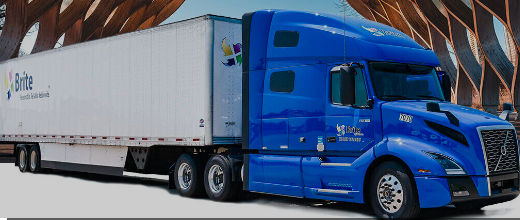
Truck driving jobs hold a critical role in the global economy, serving as the backbone of logistics and transportation. These professionals, often referred to as truck drivers or truckers, are responsible for moving goods across vast distances, connecting suppliers, manufacturers, and consumers. In this comprehensive exploration, we delve into the multifaceted world of truck driving jobs, covering their roles, responsibilities, challenges, industry dynamics, and the essential role they play in the complex web of commerce.
Introduction to Truck Driving Jobs
1 Defining the Role of Truck Drivers
Truck drivers are skilled professionals who operate large vehicles to transport goods between locations. Their tasks extend beyond simply driving, encompassing responsibilities such as loading and unloading cargo, maintaining vehicles, and adhering to safety regulations.
2 Significance of Trucking in the Global Economy
Trucking is a linchpin of the global supply chain. Truck drivers ensure the timely and efficient movement of goods, contributing to the smooth functioning of industries ranging from manufacturing to retail. The trucking industry serves as a vital artery in the circulatory system of commerce.
Roles and Responsibilities of Truck Drivers
1 Safe Operation of Commercial Vehicles
The primary responsibility of truck drivers is the safe operation of commercial vehicles. This includes long-haul trucks, tractor-trailers, and other large vehicles. Drivers must adhere to traffic rules, manage their speed, and navigate highways with precision.
2 Loading and Unloading Cargo
Truck drivers are often involved in the loading and unloading of cargo. This requires physical strength and the ability to handle various types of freight. Drivers must ensure that the cargo is secured properly to prevent damage during transit.
3 Route Planning and Navigation
Efficient route planning is crucial for truck drivers. They use navigation systems and maps to determine the most effective paths, taking into account factors such as traffic, road conditions, and delivery schedules.
4 Vehicle Maintenance
Maintaining the mechanical integrity of the truck is a significant responsibility. Truck drivers perform routine checks, address minor repairs, and report any major issues to ensure the safety and reliability of the vehicle.
5 Compliance with Regulations
Truck drivers must comply with a myriad of regulations, including hours-of-service limits, weight restrictions, and transportation laws. Adherence to these regulations is not only a legal requirement but also essential for promoting safety on the roads.
Types of Truck Driving Jobs
1 Long-Haul Truck Drivers
Long-haul truck drivers transport goods across state lines or even across countries. They often spend extended periods away from home, covering vast distances to deliver freight to different regions.
2 Local Delivery Drivers
Local delivery drivers operate within a specific geographic area, typically making short-haul trips. They transport goods from distribution centers to local businesses or directly to consumers, contributing to the last-mile delivery process.
3 Specialized Trucking
Some truck drivers specialize in transporting specific types of cargo, such as hazardous materials, oversized loads, or perishable goods. Specialized trucking requires additional training and compliance with specific regulations.
4 Owner-Operators
Owner-operators own and operate their trucks, often contracting with shipping companies or working as independent carriers. They have greater control over their schedules and business operations.
Educational and Licensing Requirements
1 Commercial Driver’s License (CDL)
Obtaining a Commercial Driver’s License (CDL) is a fundamental requirement for truck drivers. CDL classifications vary based on the type of vehicle and cargo being transported. Training programs and written exams are part of the CDL acquisition process.
2 High School Diploma or Equivalent
While a high school diploma or equivalent is not always a strict requirement, it is often preferred by employers. Basic literacy and numeracy skills are essential for tasks such as reading maps and completing paperwork.
3 Truck Driving School
Many aspiring truck drivers attend truck driving schools to receive formal training. These programs cover topics such as vehicle operation, safety regulations, and hands-on driving experience.
4 Endorsements for Specialized Driving
For specialized trucking, drivers may need additional endorsements on their CDL. These endorsements demonstrate proficiency in handling specific types of cargo, such as hazardous materials.
Skills and Attributes of Successful Truck Drivers
1 Driving Skills
Proficient driving skills are a foundational requirement for truck drivers. Maneuvering large vehicles, merging onto highways, and navigating through various terrains demand a high level of skill and attention.
2 Time Management
Time management is critical for truck drivers, especially those operating on tight schedules. Meeting delivery deadlines and adhering to hours-of-service limits require effective time management skills.
3 Physical Stamina
Truck driving can be physically demanding, requiring drivers to spend long hours on the road and engage in activities such as loading and unloading cargo. Physical stamina is essential for handling these tasks.
4 Attention to Detail
Attention to detail is crucial for ensuring the safe and secure transportation of goods. Checking cargo, inspecting the vehicle, and maintaining accurate records demand a keen eye for detail.
5 Communication Skills
Effective communication is vital for truck drivers, especially when coordinating with dispatchers, interacting with shipping/receiving personnel, or communicating with other drivers on the road.
Challenges Faced by Truck Drivers
1 Long Hours and Time Away from Home
Long-haul truck drivers often spend extended periods away from home, facing challenges related to isolation and the impact on work-life balance.
2 Traffic and Road Conditions
Truck drivers navigate through various traffic conditions, including congested urban areas and challenging weather conditions. This requires adaptability and the ability to handle diverse road scenarios.
3 Health and Wellness
The sedentary nature of truck driving, coupled with irregular schedules, can impact the health and wellness of drivers. Maintaining a healthy lifestyle on the road is a constant challenge.
4 Regulatory Compliance
Keeping up with and adhering to a multitude of regulations, including hours-of-service limits, can be challenging for truck drivers. Non-compliance can result in fines or even suspension of driving privileges.
5 Technological Challenges
While technology has brought advancements to the industry, some drivers may face challenges in adapting to new technologies such as electronic logging devices (ELDs) and route optimization systems.
Technological Advances in Trucking
1 Electronic Logging Devices (ELDs)
ELDs have become mandatory for tracking driving hours and ensuring compliance with hours-of-service regulations. These devices automate logkeeping, replacing traditional paper logbooks.
2 Route Optimization Software
Truck drivers leverage route optimization software to plan the most efficient paths. These tools take into account factors such as traffic, weather, and delivery schedules to optimize driving routes.
3 Telematics Systems
Telematics systems provide real-time monitoring of vehicles. They track metrics such as fuel efficiency, vehicle health, and driver behavior, contributing to improved fleet management.
4 Collision Avoidance Technology
Collision avoidance systems use sensors and cameras to detect potential collisions and provide warnings to drivers. These technologies enhance safety on the road.
5 Autonomous Trucks
The development of autonomous trucks is an ongoing technological frontier. While fully autonomous trucks are not yet widely deployed, the industry is exploring the integration of autonomous features for enhanced safety and efficiency.
Future Trends in Truck Driving Jobs
1 Sustainability in Trucking
The trucking industry is increasingly focusing on sustainability. Electric and alternative-fuel trucks, as well as aerodynamic designs, are emerging trends aimed at reducing the environmental impact of trucking.
2 Enhanced Driver Assistance Systems
Advancements in driver assistance systems, including lane-keeping assistance, adaptive cruise control, and automated braking, aim to enhance safety and reduce the burden on drivers.
3 Integration of Artificial Intelligence
Artificial intelligence (AI) is being integrated into trucking operations for improved route planning, predictive maintenance, and overall optimization of logistics processes.
4 Expansion of Last-Mile Delivery
The growth of e-commerce is driving an expansion of last-mile delivery services. This trend may lead to increased demand for local delivery drivers who can efficiently navigate urban environments.
5 Recruitment and Retention Strategies
Given the ongoing shortage of truck drivers, the industry is exploring innovative recruitment and retention strategies, including improved working conditions, competitive compensation, and targeted outreach to underrepresented demographics.
Conclusion
Truck driving jobs play an integral role in the intricate web of global commerce. The men and women behind the wheel of these behemoth vehicles are the unsung heroes of logistics, ensuring that products reach their intended destinations and economies continue to thrive.
As the trucking industry navigates through technological advancements, regulatory changes, and evolving consumer demands, the resilience and adaptability of truck drivers become increasingly vital. The future of truck driving jobs will likely be shaped by a harmonious integration of human expertise and cutting-edge technologies, ensuring the continued efficiency and sustainability of transportation systems.
In acknowledging the challenges and celebrating the contributions of truck drivers, it becomes clear that their role extends beyond the act of driving—it is a commitment to the heartbeat of commerce, where each mile traveled contributes to the interconnectedness of a globalized world.







